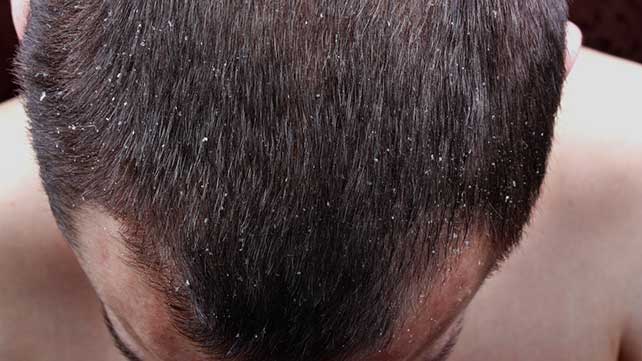Almost 80% of people with psoriasis will have scalp involvement at some point in their lives, so it’s very common and it’s never welcome.
During the festive season approaches it is important to stay on top of treating your scalp psoriasis with some top tips as follows.
Some people suffer with mild psoriasis of the scalp whilst others can experience severe scalp psoriasis which can cause intense itching.
Other symptoms include dry and flaky scalp, red scaly patches, a burning sensation or soreness and temporary hair loss.

Soften the scale
- For treatment to be effective it should relieve the symptoms.
- It is important to remove the scale before you apply any prescribed treatment, because if the scale is thick the treatment will not penetrate the psoriasis.
- Soften the scale to gently remove it.
- This can be done with coconut oil, olive oil, or almond oil. For best results leave oil on scalp overnight.
- Topical tar preparation such as Cocois® can be effective at softening and removing scale, use as directed.
Gently remove scale
- Gently remove scale.
- If you have someone to help remove the scale it would be helpful, if not, try and feel for the scale with the tips of your fingers and use a plastic, fine-toothed comb, flat against the scalp and slowly move the comb in an upward motion so that the teeth of the comb loosen the scale.
- Take care not to remove scales too forcefully as this can damage the skin and flare your psoriasis.
Wash hair
- To remove the coconut/olive/almond oil, it may be useful to apply shampoo before wetting your hair and massage in.
- Then use warm water to wash your hair and get rid of any loose scale.
- Tar based shampoos are useful in treating scale that is present in scalp psoriasis. Your doctor, nurse or pharmacist can recommend a suitable shampoo.
Apply prescribed treatment
- Topical steroids are often prescribed to settle psoriasis flares. These are absorbed better and are more effective when the thick scale is removed.
- Apply topical steroids as directed by your doctor/nurse.
Unfortunately, treatment will not cure your scalp psoriasis however the combination of the above mentioned treatments may help relieve the itch and calm a flare-up when used as directed.
In order to maintain improvement, ongoing maintenance treatment is necessary intermittently. Watch “How to Treat Scalp Psoriasis” by the British Association of Dermatologists,
For more information about Psoriasis, visit our Psoriasis Section to download our booklet, What you need to know about Psoriasis or contact the ISF Helpline for one-to-one information and support.












